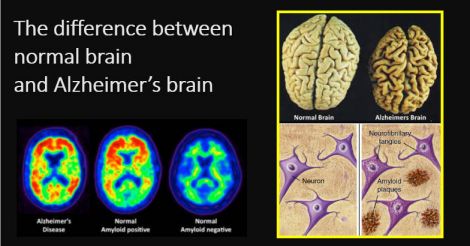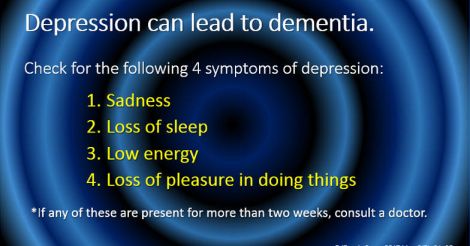Dementia or loss of memory is no longer considered a natural outcome of ageing, but rather a biological disease of the brain. Among those who live long enough to reach old age, the chance of becoming demented is one in three. In addition to other physical ailments such as arthritis or heart disease, the presence of dementia significantly worsens the suffering in old age.
Loss of memory would mean that we become unable to recall the good memories of the past. We struggle to recognise people and fail to remember things from everyday life, in the process becoming dependent and lonely. A greatly decreased quality of life is the result, not only for those with dementia, but also for those taking care of them.
 Photo: Arranged by Dr Rajeev Jayadevan
Photo: Arranged by Dr Rajeev JayadevanIs dementia preventable?
Traditionally, dementia was not considered a preventable or treatable disease by most people. Illnesses such as heart disease, diabetes, and cancer received more attention instead.
Recent research has confirmed that about one-third of the cases of dementia can be prevented through certain strategies earlier on in life. The remaining two-thirds are considered inevitable, due to a combination of genetics as well as unknown factors that are yet to be discovered. Though many types of dementia are known, Alzheimer’s and vascular dementia constitute the majority of cases, and they share common risk factors.
The strategies to prevent dementia are aimed at reducing neuronal damage, minimising brain inflammation and building up our cognitive reserve.
This article is written about what a young person can do to prevent dementia in old age.
 Photo: Arranged by Dr Rajeev Jayadevan
Photo: Arranged by Dr Rajeev JayadevanBrain reserve
While examining the brains of people with dementia, early researchers discovered beta amyloid and tau protein—abnormal materials that accumulate over time. These were once believed to be the exclusive hallmarks of dementia. However, scientists later observed that many people whose brains contained excessive amounts of these substances did not in fact have dementia.
How could these people with abnormal brains have a normal memory?
The answer lies in the concept of brain reserve, or our brain’s ability to function normally in spite of such abnormal background processes. As a result, those with greater brain reserve are able to live longer with an intact memory, while those with less would manifest dementia at an earlier age.
In other words, a larger brain reserve can postpone the onset of dementia by a few years. As any older person and their family would agree, even an extra month with an intact memory can be priceless at that age.
Our brain reserve is comprised of synapses, which are essentially connections between neurons. Every time we learn something, new connections are made. For instance, learning five features of a new cell-phone will create more connections than learning just one. In this situation, even if we forget four out of the five new facts learnt, the one remaining connection will help us stay afloat.
Thus, the greater the number of neuronal connections, the better our brain reserve—and the greater our ability to escape dementia in spite of having abnormal material accumulating in our brain.
 Photo: Arranged by Dr Rajeev Jayadevan
Photo: Arranged by Dr Rajeev JayadevanBrain reserve and money: the parallel
Our brain reserve bears an uncanny resemblance to our financial reserve. If we work hard while young and save up for retirement, the money might just last long enough—that is if we happen to live till old age. As it is increasingly hard to earn in old age, our best chance to build up our reserves is while we are relatively young.
Those who neglect to build up a good financial reserve early in their career, stand the risk of their earnings getting depleted while only half-way though retirement. The case of brain reserve is similar—once it runs out, dementia appears and there is little one can do to reverse it.
The ten things we can do now to prevent dementia in old age
1. Study harder while young
Better education is associated with less dementia in old-age. At least one of the reasons for dementia becoming less common in developed countries is better primary education. Early education not only builds strong connections between neurons, but also empowers the individual to gainfully process information in the future. It is unclear however, whether further studies will confer additional protection.
The Nun study examined a large group of Catholic sisters of age ranging from 74 to 106 over several decades and found that early language skills correlated with better memory in the long-term, indicating that the foundation for a strong brain is laid early in life. Those nuns who had good early education lived their entire life unscathed by dementia, even though their brains had shown typical features of Alzheimer’s disease when examined after death under the microscope. This makes a strong case for building up brain reserve early on in life.
2. Keep our friends and family close
Somewhat inevitable in older age groups, social isolation is a strong risk factor for dementia. It typically happens when a person is older, retired and is no longer productive. Unfortunately, in an increasingly materialistic society, such a person is sometimes perceived as a financial burden and ignored by an otherwise struggling family.
Generation gaps contribute to social isolation, with younger people preferring to mingle with those of similar wavelength. With nuclear family becoming the norm, there aren’t many people around any longer for older people to chat with.
Those who are fortunate to have people to have meaningful conversation with as they get older are better protected from dementia, when compared to those who are living a withdrawn life in isolation.
The reason is that our mind stays alert during face-to-face conversation, which involves simultaneous processing of visual and auditory cues, linguistic skills, judgment, empathy, emotions, humour, verbal and nonverbal feedback, and memory. Every time we recall something, a fresh memory is made, which reinforces the older memory by strengthening the neuronal connections in the brain.
In contrast to relatively mono-themed tasks such as solving crosswords, playing a video game or reading a text message, face-to face conversation with a friend is considered one of the best workouts for our brain. Teaching, learning a new language, writing summaries of events or articles and engaging in friendly discussions with people with ideas and opinions different from ours are other ways to boost our brain power.
 Photo: Arranged by Dr Rajeev Jayadevan
Photo: Arranged by Dr Rajeev JayadevanThe positive influence of friends goes beyond prevention of dementia. Studies have shown that those who have friends with healthy behaviours, also become healthier. For instance, we are more likely to be lean and physically active if our friends show the same traits. Depression is found to be less common among those with greater number of friends.
The converse is also true: those people whose friends are into drugs and alcohol tend to copy those negative behaviours, especially during adolescence.
In the present-day world where the very definition of the word ‘friend’ is being diluted to include casual acquaintances and even strangers whom we have never met, it pays therefore to invest time and earnest effort in relationships that go beyond material gains. Psychologists recommend making friends with people younger to us too, not only because they bring in newer thoughts and ideas, but also because they are more likely to be around—if and when we get old and frail.
Looking beyond one’s own career and family—living with a purpose in society and volunteering—are practical ways to stay clear of dementia. These simple measures help keep the mind alert, promote social interactions, improve physical fitness, dispel retirement blues, diminish loneliness and minimise stress levels.
3. Protect our ears.
Perhaps surprisingly for many, one of the most important risk factors for dementia is hearing loss. Specifically, it is the peripheral type of hearing loss occurring several years earlier that is associated with dementia later in life.
The mechanism of hearing loss leading to dementia is debatable. Experts point out that unlike the case with animals, language forms an important medium for learning and communication among human beings. Impaired hearing greatly decreases the cognitive input – contributing to dementia.
It is also possible that those with deafness get ignored and thus are unlikely to be part of meaningful conversations. They are therefore subject to some social isolation. Those with hearing loss are frequently looked down upon by society, as elaborated in my earlier article on approach to people with disabilities.
Peripheral deafness can be prevented by reducing noise pollution. Exposure to loud noise can permanently damage the sensitive nerve endings in our cochlea. This can happen from continuous listening to loud music either directly or through earphones, working in environments with high ambient noise levels or exposure to traffic noise including honking. This topic was discussed in my earlier article on the hazards of noise pollution.
4. Defeat depression
Depression past middle age is one of the risk factors for dementia in old age. Depression can either lead on to dementia, or even be the first symptom of dementia. Therefore, this relationship is a bit murky. Regardless, anyone showing signs of depression must seek medical attention. The social stigma against psychiatric illnesses prevents many people from getting the help they need, as discussed in my earlier article.
Contrary to previously held beliefs, depression is a biological disorder of the brain, and appropriate treatment has been demonstrated to alter the structure of the brain—specifically through neuro plasticity. The size of the hippocampus, the memory centre of the brain—has been shown to increase with antidepressant treatment in appropriate cases. Thus, timely treatment of depression can improve memory and decrease dementia risk.
 Photo: Arranged by Dr Rajeev Jayadevan
Photo: Arranged by Dr Rajeev Jayadevan5. Get off that couch
Physical inactivity is a risk factor for dementia. With greater automation, public transport and more desk jobs, physical inactivity is here to stay. Measures to counter this include structured exercise programs, which include brisk walking for half an hour daily at least five days a week.
6. Stay lean
Those who are obese are at greater risk for dementia. Maintaining a healthy body weight is recommended not only to prevent dementia but also to prevent other illnesses such as cancer, arthritis, diabetes and heart disease.
7. Kick the cigarette
A strong modifiable risk factor is cigarette smoking, the discontinuation of which can reduce the risk of dementia as well as other serious illnesses.
8. Keep the sugars controlled
A large segment of the middle-aged population has diabetes mellitus. It is particularly common among people who are overweight and sedentary. Good control of sugars is associated with lower risk of dementia among people with diabetes.
9. Watch the Blood Pressure
A healthy blood pressure ensures adequate blood circulation in the brain. Poorly controlled blood pressure can damage tiny blood vessels that supply oxygen to the brain, leading on to dementia. Satisfactory control of BP is therefore important in preventing dementia.
10. Sleep well
An important health parameter that often gets ignored during youthful years, sleep is an essential bodily process where brain cells undergo rejuvenation, which includes the clearing of ‘garbage’ that got deposited within the brain during waking hours. Inadequate sleep is known to result in accumulation in the brain of waste products such as beta amyloid, a substance implicated in dementia.
In summary, dementia is now regarded as a preventable disease. Preventing dementia, or at least delaying its onset—improves not only our own quality of life in old age, but also that of those who live around us.
The 10 strategies listed above can minimise brain loss and build up our cognitive reserve through better education, cognition, social interaction and overall health. These interventions are effective even among APOEε4 allele carriers who are genetically predisposed to dementia.
As is the case with financial planning, building up a good brain reserve is best attempted when we are relatively young. Protecting our hearing, treating depression early, being physically active and creating meaningful social relationships are effective practical strategies against dementia.
Further reading
The impact of social media and friend networks on high risk health behaviour
How friends and family affect a person’s alcohol drinking behaviour
How our friends affect our obesity and physical activity levels
How friends can help prevent depression even among those at higher risk
Aging with grace: What the Nun Study teaches us about leading longer, healthier and more meaningful lives; David Snowdon, PhD.
The effect of crossword puzzles on cognitive reserve
The effect of hearing impairment on dementia
Dementia prevention, intervention and care, Livingston et al, The Lancet July 2017
(The author is a senior consultant gastroenterologist and deputy medical director, Sunrise group of hospitals)


























 Photo: Getty Images
Photo: Getty Images